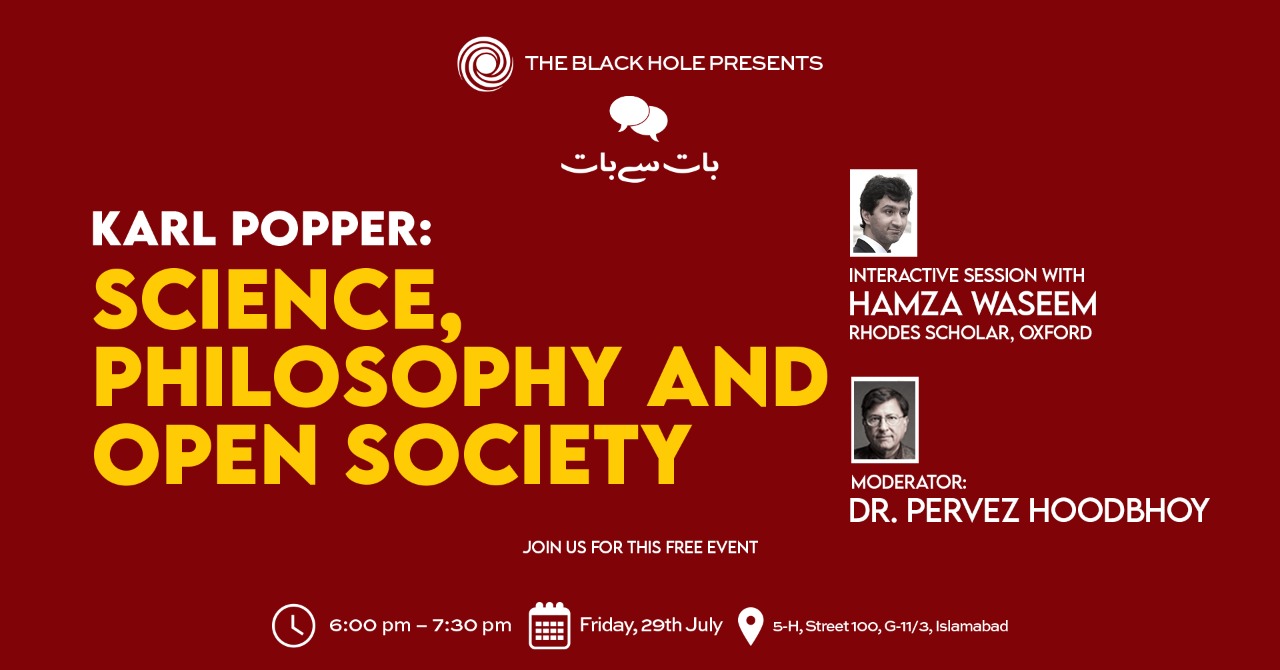
Karl Popper: Science, Philosophy and Open Society
Karl Popper is recognised as one of the most important philosophers of science of the 20th century. He was a champion of rationality and freedom of thought, and an ardent critic of authoritarian tendencies both in science and society. In this session, Hamza Waseem reviewed Popper’s work in philosophy of science and epistemology, and pointed out some common misconceptions about his work. He also discussed Popper’s notion of an ‘open society’ and its relevance for education and political discourse in Pakistan.
This session had been moderated by Dr. Pervez Hoodbhoy.
About the speaker
Muhammad Hamza Waseem is pursuing a DPhil in Physics at the University of Oxford. His studies are funded by a Rhodes Scholarship. His research revolves around quantum structures, applied category theory, natural language processing, and magnonics. During his undergraduate studies in electrical engineering at UET Lahore, Hamza helped develop the first lab for single photon quantum physics in Pakistan. He also co-authored a book ‘Quantum Mechanics in the Single Photon Laboratory’ published by the Institute of Physics (IOP), UK.
Keen on public engagement with science, Hamza has helped organise the Lahore Science Mela, the biggest annual science festival in Pakistan. He co-founded Spectra—an online magazine aimed at training popular science writers in Pakistan. For science popularisation, Hamza has been awarded the 2021 Diana Award and was highly commended at the 2021 SEPnet Public Engagement Awards.
At Oxford, Hamza teaches mathematics and physics at Mathematical Institute and Department of Computer Science. He has also been a Lecturer in Physics at Magdalen College. He is a Research Scientist at Cambridge Quantum and Research Fellow at Global Centre for Advanced Studies, Dublin. He can be contacted at hamza.waseem@physics.ox.ac.uk